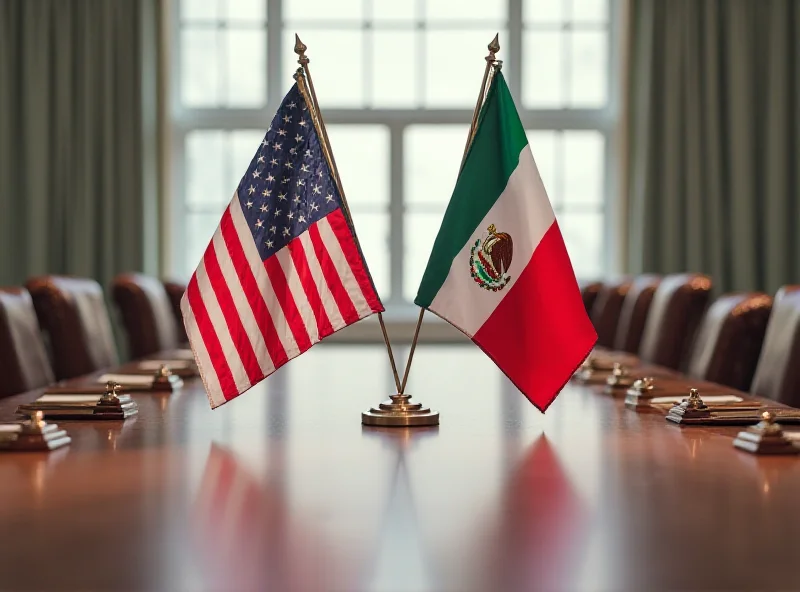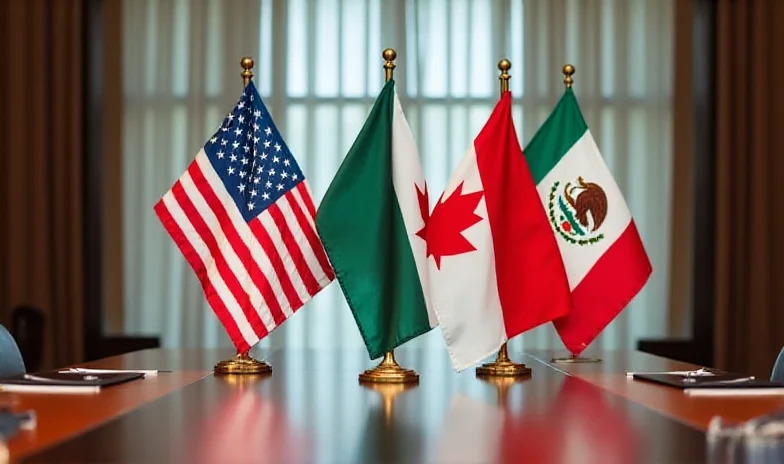President Trump's administration is signaling potential changes in several key areas of foreign policy, impacting trade relations, military aid, and geopolitical strategies. These shifts come as the world watches closely, analyzing the implications for international stability and economic partnerships.
Tariff Deal on the Horizon?
A possible deal to roll back U.S. tariffs on goods from Canada and Mexico may be in the works. A Trump administration official hinted at this development ahead of President Trump's address to Congress. This potential agreement could ease trade tensions and boost economic activity between the three countries.

The markets are expected to react positively to any news of reduced tariffs. Such a move could signal a shift towards a more conciliatory trade policy, potentially leading to increased investment and economic growth.
Ukraine Aid Suspended, Tensions Rise
In a significant move, the Trump administration has suspended all U.S. military aid to Ukraine, leaving billions of dollars' worth of weapons and equipment in limbo. This decision has raised concerns about the future of U.S.-Ukraine relations and the impact on Ukraine's ability to defend itself.
The U.S. has provided approximately $21 billion in military aid to Ukraine since the start of the conflict. The suspension of this aid could have serious consequences for Ukraine's security and its ongoing struggle.
Adding to the complexity, tensions recently flared at the White House after President Trump and Vice President JD Vance reportedly criticized Ukrainian President Zelensky for not being "thankful" enough for U.S. support. This spat highlights the growing strain between the two nations.

China's Taiwan Strategy Post-Ukraine
The situation in Ukraine has prompted many to wonder about China's plans for Taiwan. Despite the global focus on Ukraine, analysts believe Beijing remains primarily focused on its economy and will continue its "carrot and stick" approach to Taiwan reunification.
Upcoming political sessions, known as the "Two sessions," may offer further clues into Beijing's long-term strategy. It is expected that China will maintain a balance of economic incentives and political pressure to achieve its goals regarding Taiwan.
"Beijing is preoccupied with the economy this year and will keep up its carrot and stick approach to Taiwan reunification," according to analysts.

These developments across trade, military aid, and geopolitical strategy indicate a dynamic and evolving foreign policy landscape under the Trump administration. The world watches closely to see how these shifts will shape the future.
